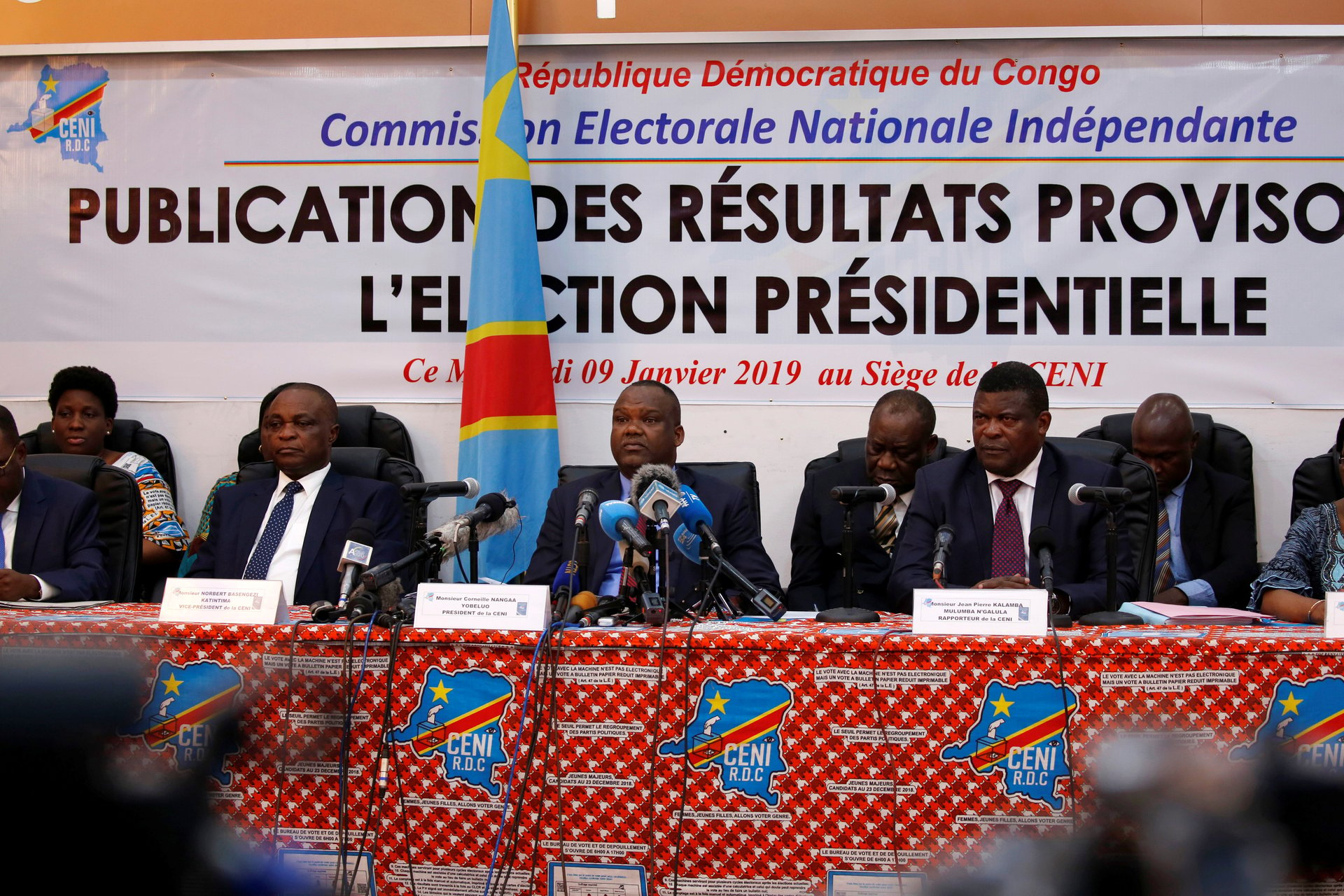The results of DR Congo’s historic presidential elections are being strongly disputed
The Democratic Republic of Congo’s first ever democratic transfer of power since its independence from Belgium in 1960 is not happening without incident.


The Democratic Republic of Congo’s first ever democratic transfer of power since its independence from Belgium in 1960 is not happening without incident.
Barely hours after Felix Tshisekedi was announced as president-elect, the election results are being disputed. DR Congo’s Catholic Church, a powerful institution in the country, says the results announced does not match tallies made by its 40,000 election observers. France has also weighed in to raise doubts about Tshisekedi’s win. Jean-Yves Le Drian, foreign minister of France, has also called for “clarity” on the results as they are “opposite to what we expected.”
Belgium has said it is planning to raise concerns over the contested election at the UN Security Council, according to the Associated Press. The Belgian foreign minister told local state radio that “what we’re waiting for now is to see the reaction of the Congolese themselves as well as the observers who were able to monitor vote counting.”
The British foreign secretary Jeremy Hunt tweeted he’s “very concerned about discrepancies” in the provisional results. He called for the data and methodology to be examined and said he was pleased the Security Council is set to discuss the matter on Friday.
The African Union has crucially not issued congratulations to the winner. In a statement AU head Moussa Faki Mahamat urged Congo to find a “genuine national consensus” whatever the results.
The concerns over the result are likely linked to pre-election polling, popular sentiment and analysis of the voting results which all suggest that Martin Fayulu, a major opposition candidate, was the front-runner. Fayulu finished second with 6.4 million votes in results announced by the electoral commission, CENI. Tshisekedi garnered just over 7 million votes while Emmanuel Shadary, believed to be the preferred candidate of incumbent president Joseph Kabila, came third with just 4.4 million votes. For his part, Fayulu, a former Exxon Mobil executive, has rejected the results calling it an “electoral coup.” In a statement, he said: “These results have nothing to do with the truth of the ballots. It is ostensibly an unacceptable electoral fraud that could naturally lead to a chaos across the country.” Fayulu also urged local institutions which monitored the results to release their tallies and called on international bodies, including the United Nations and the African Union, “to support the Congolese people to re-establish the true electoral results for the sake of solidarity.”
The Catholic Church in DR Congo has played a crucial role in buttressing and supporting local civil society in sub Saharan Africa’s largest country. It is respected and influential given its vast congregation and its investment in primary education and amenities where the country’s dysfunctional governments has been found wanting.
With the national government largely in control of state resources and perennially under-investing in infrastructure, the church’s actions are seen to fill a crucial gap. The church has also been vocal about matters of state in DR Congo, having been a source of consistent criticism of long-serving dictator Mobutu Sese Seko in 1990s.
More than 46 million citizens were registered to cast their votes on Dec. 30, in the historic election for country which has never seen a democratic transition of power since achieving independence from Belgium in 1960. The elections came after a two-year delay as Kabila sought to extend his stay in power amid violent protests.
There are credible concerns that Fayulu’s followers will protest if he does not accept the results, but supporters of Felix Tshisekedi, whose father Etienne was a longtime opposition leader till he died in February 2017, have come out to celebrate in the streets of stronghold areas in Kinshasa.
Sign up to the Quartz Africa Weekly Brief here for news and analysis on African business, tech and innovation in your inbox